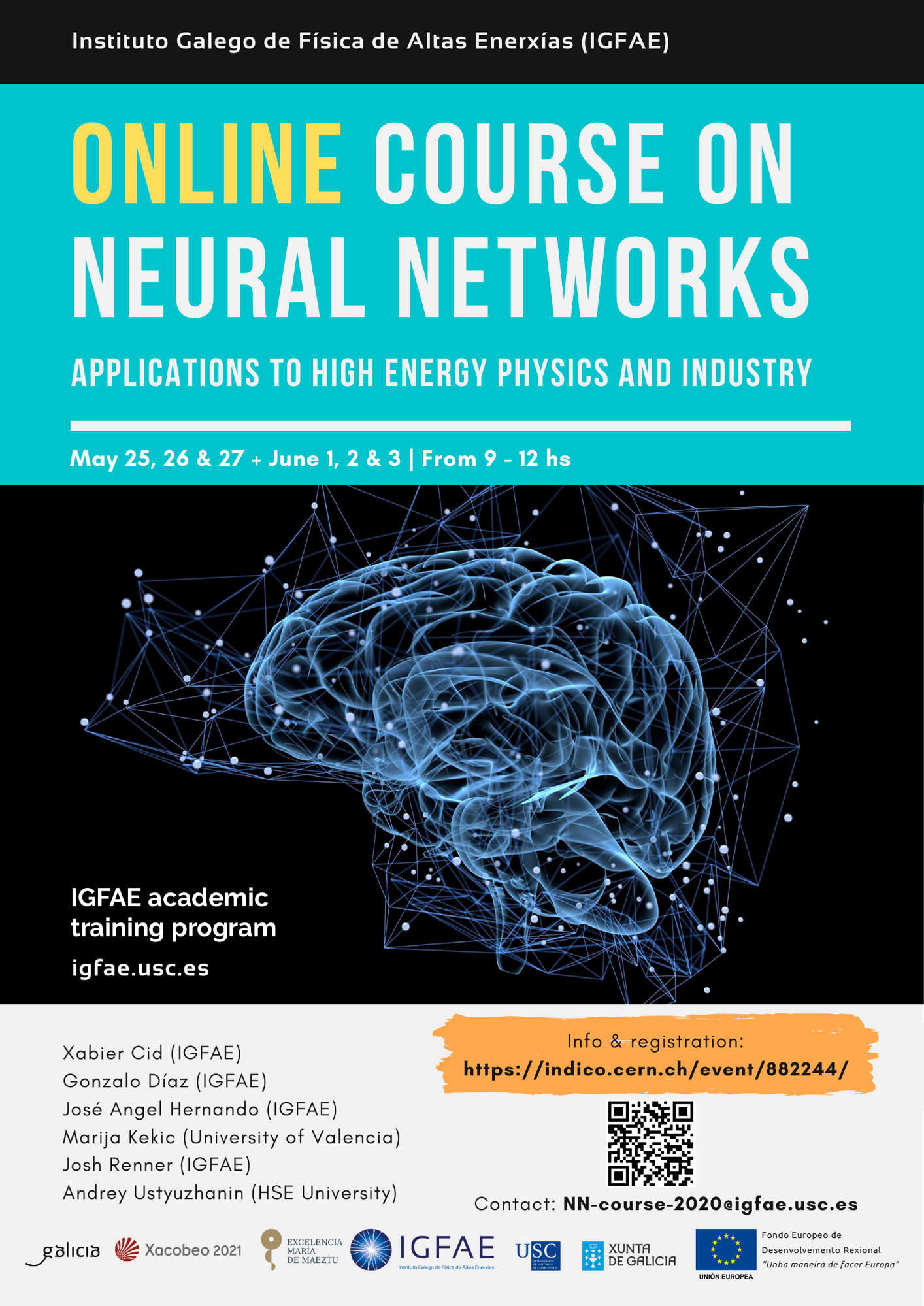Artificial Neural Networks (ANNs) are computational models able to learn from previously provided datasets, constituting a different paradigm than classical computation algorithms in which tasks are run sequentially. This ability has allowed ANNs to produce accurate solutions to complex problems, such as image or sound recognition, that significantly outperform solutions based on classical computing. Their development has been aided by rapid improvements in hardware capabilities over the last two decades and is nowadays an active field of study whose applications extend far beyond academic research.
In this course, organized by the Instituto Galego de Física de Altas Enerxías (IGFAE), basic methods in machine learning and ANNs will be introduced at a conceptual and practical level, as well as some interesting applications in Particle Physics and industry. The course will take place virtually through Microsoft Teams in the mornings of 25th, 26th, 27th of May and 1st, 2nd and 3rd of June. It is aimed at researchers, teachers, CIT professionals and students.
Overview:
- Introduction to Neural Networks (Days 1, 2, 3)
- Applications in Particle Physics (Days 4 and 5)
- Applications in industry (Day 6)
Important requirements:
- Basic knowledge of statistics, Python and Jupyter Notebooks
Connection details:
- We will have live events in Microsoft Teams (no registration or account needed) and we will also create a team for you to join the hands-on sessions. This will be announced in due time.
To join the course every day at 9:00, click in the following links:
Day 1 [25/05/20]
Day 2 [26/05/20]
Day 3 [27/05/20]
Please, bear in mind we will be using the interactive rooms the second week of the course. You should be part of the specific Team created for this. If you've got problems joining, please let us know.
Connection details:
- Hands-on session link:
https://colab.research.google.com/github/HSE-LAMBDA/MLatUSC-2020
NEXT activity (Day 4):
- Slides: https://github.com/jerenner/uscnncourse/blob/master/CNNs_and_NEXT.pdf
- Code: https://colab.research.google.com/github/jerenner/uscnncourse/blob/master/next/NEXT_classification.ipynb
- Background information on the classification problem: https://jerenner.github.io/next-dnn-topology/
